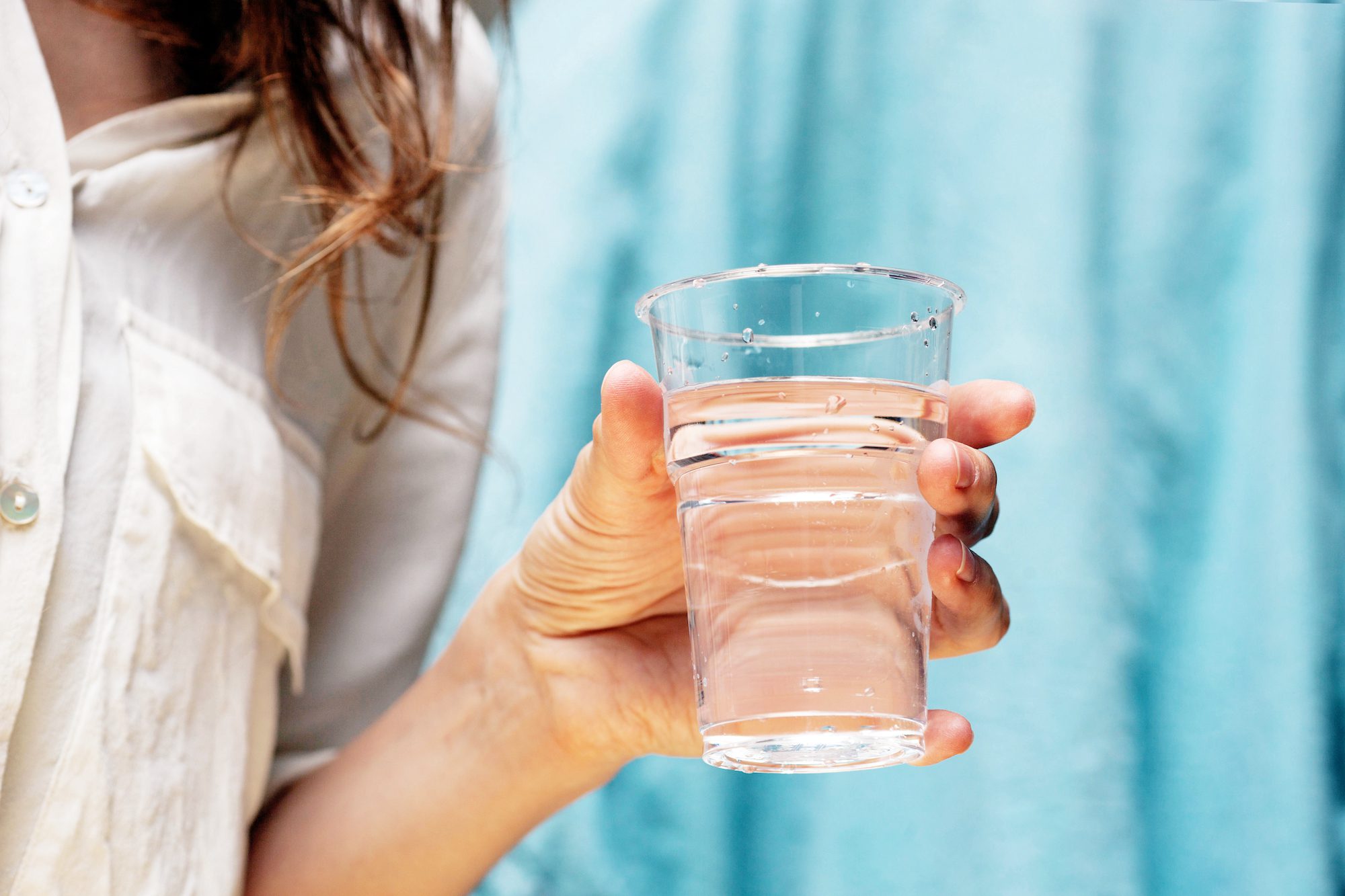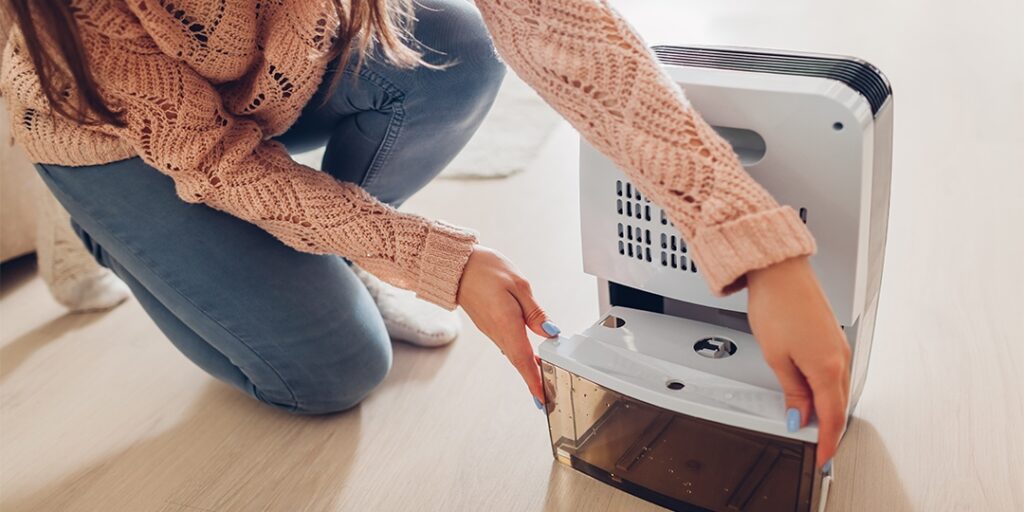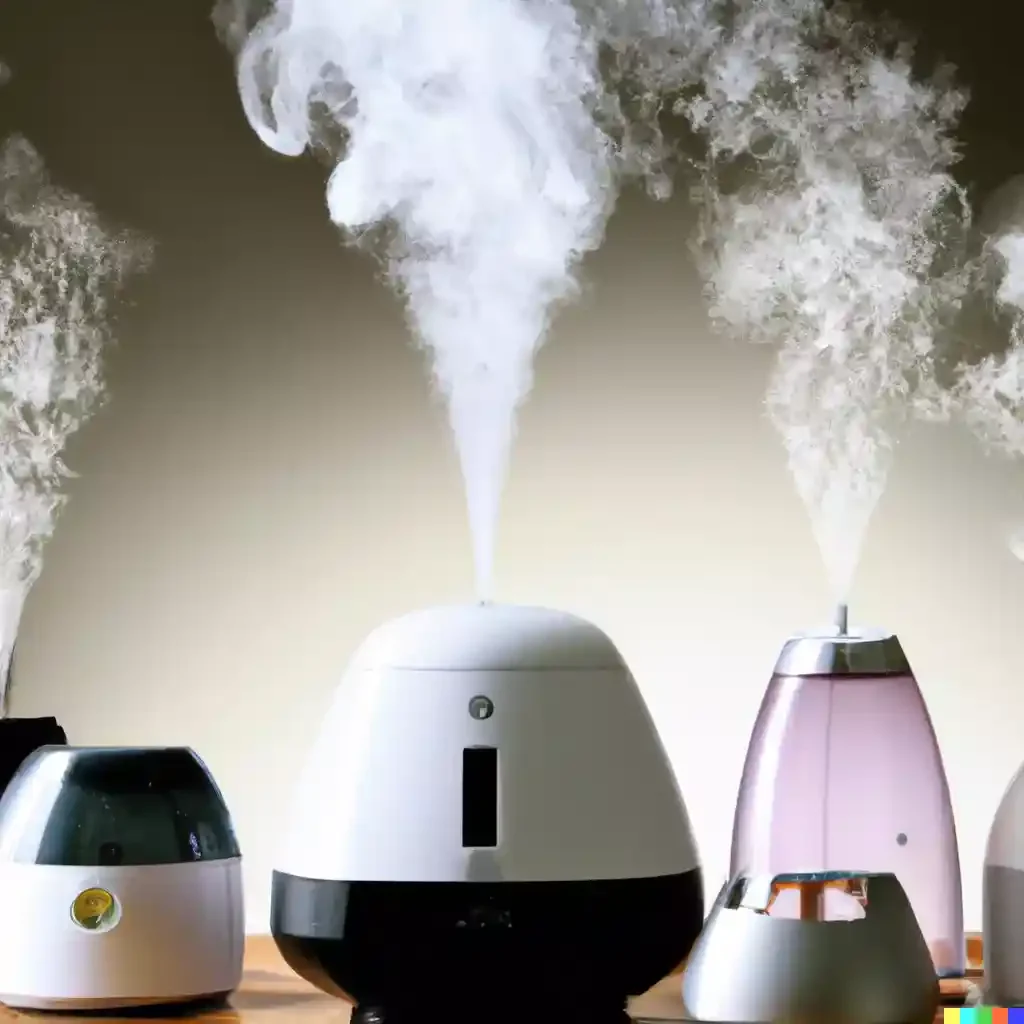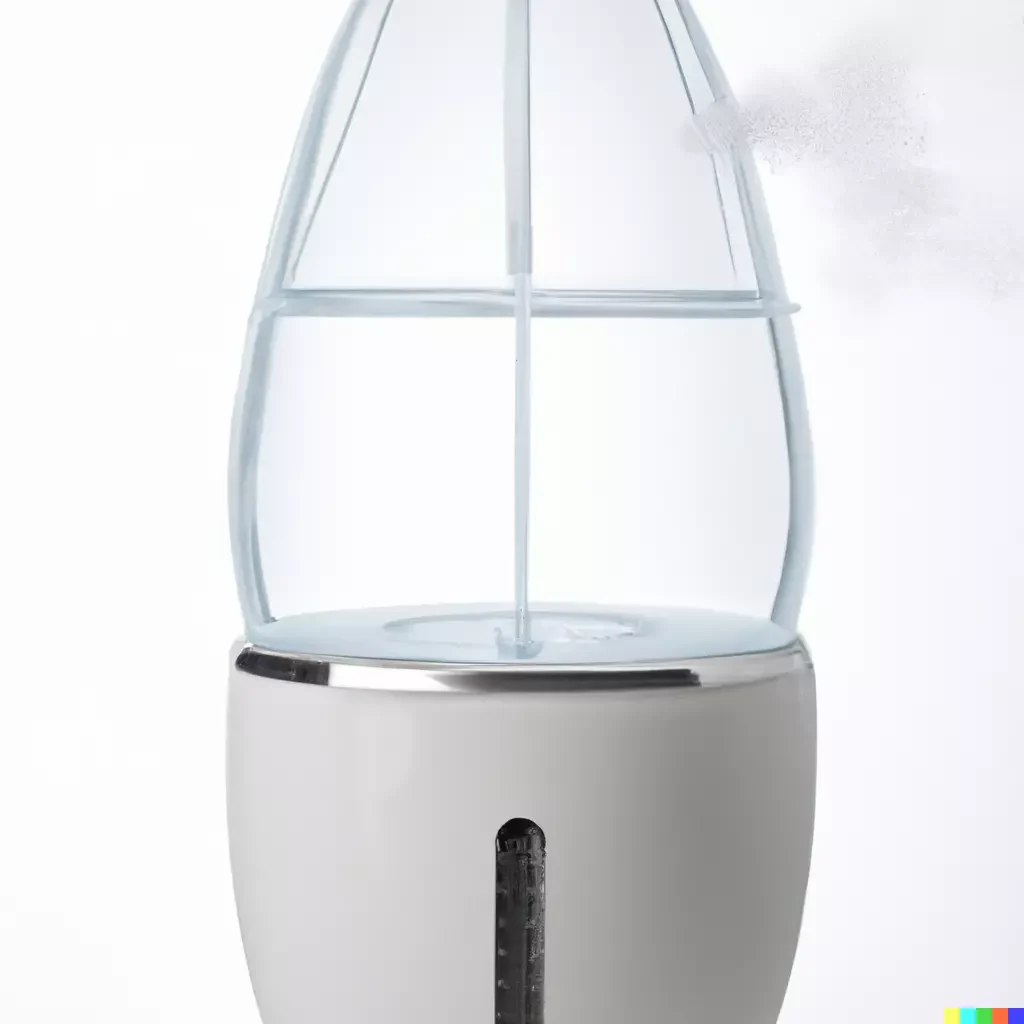Yes, you can use purified water in a humidifier. It is often recommended to prevent mineral buildup.
Using purified water in your humidifier can extend the appliance’s life and improve air quality. Many manufacturers advise against tap water due to minerals and impurities that can create deposits within the machine and expel white dust into your air.
Opting for purified water reduces these risks, leading to fewer maintenance issues and cleaner moisture output. By using purified water, you also lower the chances of bacteria and mold growth, since these organisms thrive less in water that lacks impurities. For those with respiratory issues or allergies, purified water in humidifiers is particularly beneficial, ensuring the mist they breathe is as clean as possible. This simple choice can significantly impact the effectiveness and longevity of your humidifier, ensuring a healthier home environment.

Credit: www.sleepfoundation.org
Understanding Humidifier Water Needs
When it comes to ensuring your humidifier functions optimally, choosing the right type of water is crucial. An understanding of the water needs for your humidifier is not just about keeping the device running smoothly—it’s about maintaining your health, preserving your environment, and ensuring longevity of the humidifier. Explore the importance of water quality in humidifiers, how different types of water can influence the device’s function and lifespan, and get to know the options available for your device.
Importance Of Water Quality In Humidifiers
Ensuring the use of suitable water in humidifiers is paramount. High-quality water protects against the build-up of minerals and microorganisms:
- Minimizes White Dust: Using purified water can reduce the emission of white dust—a byproduct of minerals in the water.
- Prevents Bacterial Growth: Pure water helps in hindering the proliferation of bacteria and mold in the water tank, thus promoting a healthier air quality.
- Protects Humidifier Components: Scale buildup from hard water can damage the internal workings of a humidifier, shortening its lifespan.
How Water Type Influences Humidifier Function And Lifespan
The type of water used in a humidifier can greatly affect its performance and durability. Tap water often contains minerals that can clog the system, whereas distilled or purified water is generally devoid of these elements, boosting humidifier efficiency and longevity.
Types Of Water Available For Humidifiers
Different water types offer various benefits and drawbacks when used in humidifiers:
| Water Type | Pros | Cons |
|---|---|---|
| Tap water | Readily available | May contain minerals and impurities |
| Distilled water | Low mineral content | Costly over time |
| Purified water | Reduced mineral content, less bacterial growth | Can be more expensive than tap water |
To conclude, utilizing purified water in your humidifier could be a beneficial practice to enhance air quality, preserve the device, and contribute to a healthier living space.
Ensuring Optimal Humidifier Performance
Ensuring the peak performance of your humidifier isn’t just about regular cleaning and maintenance; it involves understanding the small but critical components, such as the type of water you use. Using purified water in your humidifier can be a game-changer for maintaining its efficacy, preventing unnecessary mineral buildup, and ultimately prolonging its life. Dive into the importance of employing purified water for an unwavering humidifier performance.
The Role Of Purified Water In Preventing Mineral Buildup
Purified water is devoid of minerals commonly found in tap water. These minerals can lead to crusty deposits in your humidifier, hindering its efficiency. By using purified water, you’re minimizing the risk of mineral buildup, which can clog the machine’s mechanisms and reduce its ability to emit moisture effectively. This practice ensures that the humidifier continues to operate seamlessly, producing a fine mist without the white dust or particles that often accompany mineral-heavy water vapor.
How Purified Water Can Extend The Life Of A Humidifier
When you fill your humidifier with purified water, you’re proactively protecting its components. Scale, rust, and other mineral-induced issues are no longer a concern, meaning that every part of your humidifier, from its filters to its motor, can function without the corrosive or clogging effects of impurities. This careful consideration not only extends the optimal effectiveness of the humidifier but also avoids frequent replacements or repairs that result from using lower quality water.
Maintaining Consistent Humidifier Performance With Purified Water
Consistency is key to any appliance’s longevity, and humidifiers are no exception. Purified water offers a stable, mineral-free base, allowing your humidifier to produce a consistent output of humidity. With fewer variances caused by fluctuating water quality, the humidifier can maintain a steady performance level. This uniformity is not only beneficial to the device but also ensures a constant balance of moisture in your environment for enhanced comfort and well-being.
Assessing Water Options For Your Device
Choosing the right type of water for your humidifier is crucial to maintain device efficiency and air quality. The water you use can have a significant impact on both the lifespan of the device and the health benefits you derive from it. Let’s dive into the different water options and navigate through the best choice for your humidifier.
Distilled Vs. Purified Water: Analyzing The Benefits And Drawbacks
Purified water and distilled water are often recommended for use in humidifiers, but they are not identical. Distilled water, having gone through the process of distillation, is free of minerals and impurities. On the other hand, purified water is filtered to remove chemicals and pathogens but may still contain some dissolved minerals.
| Water Type | Benefits | Drawbacks |
|---|---|---|
| Distilled Water |
|
|
| Purified Water |
|
|
When To Avoid Tap Water In Humidifiers
Tap water should generally be avoided in humidifiers because it can contain minerals and other impurities that can harm the device. When these minerals are released into the air, they can settle as white dust on household surfaces and potentially worsen indoor air quality. Additionally, the mineral buildup inside the humidifier can lead to bacterial growth and shorten the device’s lifespan.
Use tap water only if it’s been certified as soft and free of harmful microbes. Otherwise, consider alternatives such as distilled or purified water to prevent:
- Mineral buildup inside the humidifier
- Dispersal of mineral dust in the air
- Damage to the humidifier mechanisms
Potential Risks Of Using Hard Or Untreated Water
Using hard or untreated water in your humidifier carries several potential risks, especially if your water has a high mineral content. Hard water can cause scale deposits to build up inside your humidifier, which can:
- Reduce the efficiency of the device
- Encourage the growth of microorganisms
- Lead to unpleasant odors
- Possibly cause malfunction or lead to a shorter device lifespan
Untreated water might also harbor bacteria and viruses that can be dispersed into the air, posing health risks. To maintain a clean and healthy environment, it is advisable to use distilled or purified water, which has undergone treatment to ensure it’s free from these harmful elements.
Can I Use Purified Water In Humidifier: Best Practices
Filling your humidifier with the right type of water is crucial for enhancing your indoor air quality and ensuring the longevity of the device. “Can I Use Purified Water in Humidifier?” remains a common query for humidifier owners. The simple answer is yes, and there’s a myriad of reasons why purified water reigns as the optimal choice. Adhering to best practices when using purified water in your humidifier can lead to significant advantages in air quality and health, not to mention the prevention of unwanted bacterial and mold growth.
Advantages Of Purified Water For Air Quality And Health
Humidifiers play a vital role in maintaining adequate moisture levels in the air, which can be highly beneficial, especially during the drier months. Using purified water amplifies these benefits, with advantages including:
- Eliminating impurities: Purified water has gone through a rigorous filtration process, removing contaminants and minerals that could otherwise be dispersed into the air.
- Preventing white dust: Tap water often contains minerals that can create a fine, white dust when used in humidifiers. Purified water lacks these minerals, so it does not lead to this issue.
- Consistent performance: Using purified water helps maintain your humidifier’s efficiency and can extend the life span of your device.
- Enhancing comfort: Purified water ensures a cleaner mist, contributing to a more comfortable indoor environment and potentially reducing allergy symptoms.
How Purified Water Reduces Bacterial And Mold Growth
The warm and moist conditions in a humidifier can become a breeding ground for bacteria and mold if not managed properly. Purified water acts as a barrier to these concerns by:
- Minimizing the nutrients available for microbes, as it lacks the dissolved impurities that support their growth.
- Providing less mineral buildup, which often serves as a habitat for bacteria and mold to thrive.
Additionally, many users prefer purified water in an effort to prevent microbial proliferation without the excessive use of chemical additives or frequent cleaning cycles.
By adopting these best practices when choosing your humidifier’s water content, you not only promote a healthier living space but also embrace the most hygienic approach for humidification.
Maximizing Benefits Of Purified Water Usage
Utilizing purified water in your humidifier is not just a suggestion; it’s a game-changer for enhancing the device’s performance and lifespan. Purified water is devoid of minerals and impurities that often lead to build-up and bacteria growth in humidifiers. By understanding the best practices for maintenance and optimized use, you can ensure a cleaner atmosphere at home while prolonging your humidifier’s efficiency.
Regular Cleaning And Maintenance Of Your Humidifier
Cleanliness is crucial for the optimal functioning of your humidifier. Regularly clean your humidifier to prevent mineral deposits from the water from forming on the machine’s parts, which can impede its efficiency and potentially release unhealthy particles into the air. Here’s how to maintain your humidifier with purified water:
- Empty the tank and rinse it with purified water after each use.
- Disinfect with a simple solution of bleach or hydrogen peroxide weekly.
- Allow the humidifier to air dry before the next use to prevent moisture build-up.
- Inspect for any signs of wear or damage during each cleaning.
Tips For Storing Purified Water For Humidifiers
To ensure your humidifier only uses the highest quality water and remains free of contaminants, store your purified water properly. Here are some best practices for storage:
- Keep purified water in a clean, airtight container to prevent exposure to dust and other impurities.
- Store the container in a cool, dark place away from direct sunlight.
- Label the storage container with the fill date and ensure to use it within a few days.
- Never mix old water with fresh purified water in storage to maintain its purity.
Recognizing When To Replace Or Clean Your Humidifier’s Filter
A clean filter is essential for any humidifier, especially when using purified water. A clogged or dirty filter not only diminishes the air quality but also hampers the efficacy of the humidifier. Here’s how to recognize when a filter requires attention:
- Check the manufacturer’s guidelines to know the lifespan of your humidifier’s filter.
- Look for discoloration, bad odors, or a decline in output as signs that the filter needs a check.
- Regularly rinse washable filters with purified water to remove any build-up.
- If your humidifier uses disposable filters, replace them as recommended or when they show signs of wear.
By adhering to these easy yet effective practices for using purified water in your humidifier, you can greatly enhance your indoor air quality and device functionality.
Frequently Asked Questions For Can I Use Purified Water In Humidifier
Is Purified Water Safe For Humidifiers?
Purified water is ideal for humidifiers as it is free from minerals and impurities. Using it can reduce the buildup of scale and prolong the device’s lifespan. Always check the manufacturer’s recommendations before use.
Can I Use Tap Water Instead Of Purified In Humidifiers?
Tap water is less preferable for humidifiers because it may contain minerals that can lead to deposits inside the machine and disperse white dust into the air. Purified water is generally a better choice to avoid these issues.
Will Purified Water Help Reduce White Dust?
Yes, using purified water in your humidifier can significantly reduce white dust. This dust is actually mineral deposits from regular tap water, which purified water does not contain.
Does Using Purified Water Improve Air Quality?
Using purified water in your humidifier can improve air quality since it prevents mineral build-up and the release of white dust into the air, ensuring cleaner moisture output.
Conclusion
Absolutely, purified water can be a suitable choice for your humidifier. By opting for this, you can potentially extend the life of your device and enjoy cleaner mist. Remember to maintain regular cleaning habits, ensuring optimal performance. Choose purified water for peace of mind and breathe easier at home.





